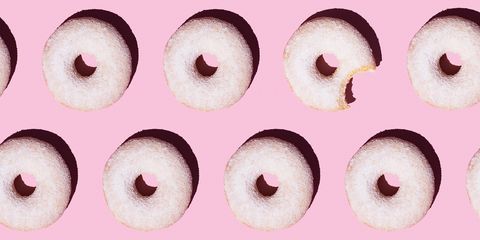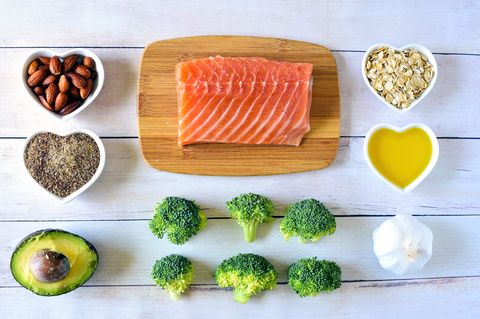safety-lane.com 07105
NEWARK
http://bit.ly/1DCt06V
How to lower your cholesterol – and why it’s so important
If, like me (prior to writing this piece), you thought cholesterol was
- a) Something only those in their 50s and beyond needed to be concerned with, and
- b) somehow improved by switching the type of butter you use
…then hopefully the below will clear things up. We grilled Dr Aimée Brame, Consultant Physician at London Bridge Hospital (part of HCA Healthcare UK) on all things cholesterol: whether or not young people need to be concerned about it, how to lower cholesterol, and why it particularly affects pregnant women.
What is cholesterol and how is it measured?
A great place to start, if ever there was one. “Everyone has cholesterol, a fat found in the blood, in their body. It’s used to build cell walls, to make hormones, and to produce fat soluble vitamins and bile acids, which are used to help digest food,” explains Dr Brame. Measuring cholesterol levels is a fairly straightforward process, involving a blood sample (sometimes this could even be a finger prick blood test).
Total cholesterol is made up of two parts: HDL cholesterol (the good kind, higher levels of this actually reduce the risk of heart diseases) and non-HDL cholesterol (the bad kind, associated with health problems). Non-HDL cholesterol is bad because it clogs up arteries, whereas HDL cholesterol helps to clear them.
Bonus info: Triglycerides, another form of fat, also associated with an increased risk of heart disease and strokes, may also be measured as part of a cholesterol screening too. Drinking a lot of alcohol or eating lots of starchy foods and saturated fats contribute to high triglyceride levels. Polycystic ovary disease, diabetes, thyroid disease, obesity and kidney disease are all associated with abnormal triglyceride levels and increased risk of health complications.
Why is high cholesterol bad?
Basically, those with higher levels of non-HDL cholesterol have an increased risk of having a heart attack, stroke and or other health problems. “Cholesterol levels are dependent on a combination of genetics and lifestyle factors (such as being overweight, eating a poor diet and lack of exercise),” explains Dr Brame. “Other people inherit genes which cause them to make too much cholesterol.”
Cholesterol levels are elevated in pregnancy because it’s used to make new cells for the baby, as well as helping with the influx of preggy hormones. “Levels can rise somewhere between 25 and 50%, however it’s the good cholesterol which rises the most,” says Dr Brame, who also advises that levels generally return to normal around a month after birth. It’s rare for high cholesterol in pregnancy to require treatment. “In general, women have higher levels of HDL (or good) cholesterol than men, because their bodies contain more of the ‘female hormone’, estrogen.” This changes when women reach the menopause: HDL levels fall, total cholesterol and non-HDL cholesterol levels start to rise, and the risk of cardiac disease also increases. Cheery stuff (sorry).
Do young people need to worry about lowering their cholesterol?
Maybe – it all depends on whether or not you have a family history of heart disease or high cholesterol, in which case you might be offered cholesterol testing (especially if you smoke or have diabetes, heart problems or high blood pressure). “People with high levels may receive lifestyle advice from their GP, for example to quit smoking, or to adjust their diet to include lots of fruit, vegetables, whole grains, fibre and healthy fats,” says Dr Brame. “More frequent testing may also be offered. High cholesterol is managed with a combination of lifestyle modifications and if necessary, medication.” If you have any concerns, book in with your doctor to chat them through.
What should you eat to lower cholesterol?
First up, let’s go through what you should be avoiding if you’re on a mission to reduce your cholesterol levels (brace yourself): red meat, butter, fried foods, cheese and saturated fats are all a big thumbs down. So definitely no bacon and cheddar toasted sandwiches. Instead your diet should include:
- Fruits and vegetables
- Lean proteins
- High fibre foods (such as oats and beans). Oats are especially good as they contain a protein called beta-glucan, which is effective at binding cholesterol in the gut and allowing it to pass out of the body.
- Good fats, such as those found in olive oil, nuts and fatty fish like mackerel, trout or salmon.
- Nuts, because they’re a valuable source of fat-soluble vitamins, plant stenols and sterols, which also bind bad cholesterol.
What else can you do to lower cholesterol?
Sounds obvious, but ditching the fags, losing weight and increasing your activity levels to around 30 minutes of exercise for five days a week, are all factors shown to reduce non-HDL-cholesterol. “Weight loss doesn’t have to be extreme, a 10% reduction is effective, particularly if the weight is concentrated around the tummy,” notes Dr Brame. “Reducing alcohol intake is effective in helping weight loss and reducing high triglyceride levels too.”
If you’re found to be especially at risk of heart disease, vascular disease, high blood pressure or diabetes, a medication called a statin may be prescribed for you. It’s likely your doctor will request further blood tests to check your levels improve once you’re on it too.
via Blogger http://bit.ly/358vgTR




Recent Comments